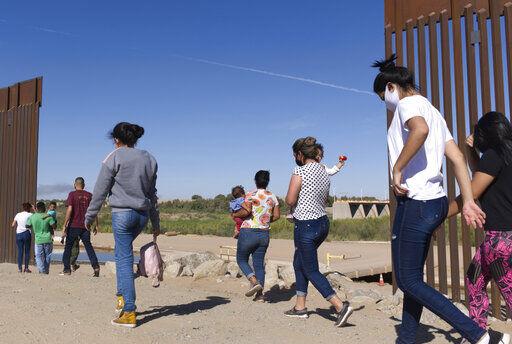
By Bethany Blankley | The Center Square contributor
More than 775,000 people illegally crossed the border into Arizona in fiscal 2023, according to official U.S. Customs and Border Protection data and preliminary gotaway data.
This includes 576,912 apprehensions officially reported by CBP and at least 198,110 gotaways reported by Border Patrol agents alone, according to the preliminary data The Center Square obtained from a Border Patrol agent.
Arizona’s 378 miles of shared border with Mexico are divided into two CBP sectors: Tucson and Yuma. Tucson Sector’s 262-border miles extend from the Yuma County line to the Arizona-New Mexico state line. Yuma Sector’s nearly 182,000 square miles of primarily desert terrain extends from Imperial Sand Dunes in California to the Yuma-Pima County line.
Tucson Sector reported the third-highest number of illegal entries along the southwest border, behind the top two sectors of El Paso and Del Rio in Texas.
Tucson Border Patrol agents apprehended 373,625 people and reported at least 185,866 gotaways – nearly half as many as who were apprehended, or 49%.
Tucson Sector Office of Field Operations agents at ports of entry apprehended 29,086, the smallest number of the four OFO sectors along the southwest border. Agents at ports of entry in the Laredo OFO Sector in Texas, by comparison, apprehended 215,060.
Yuma Sector Patrol Patrol agents apprehended 174,201 people and reported 12,244 gotaways, according to the data.
Combined, apprehensions and at least 198,110 gotaways total 775,022.
Arizona’s more than 775,000 illegal border crossers account for roughly 24% of all illegal border crossings nationwide that reached nearly 4 million in fiscal 2023, as The Center Square previously reported.
The majority illegally entering the Tucson Sector are primarily single, military age men, although family units and women have been apprehended. Tucson Sector Border Patrol Chief John Modlin testified before Congress earlier this year that, “The smuggling organizations to our south are very well organized and resourceful,” referring to Mexican cartels.
“Each and every person crossing through the Tucson Sector must pay these criminal organizations,” he said. “The migrants we encounter are completely outfitted in camouflage by the smuggling organizations before they cross. Most run from and fight our agents to avoid apprehension. Many are previously deported felons who know they are inadmissible to the United States and many pose a serious threat to our communities.”
Arizona’s more than 775,000 illegal border crossers represent roughly 40% of the more than 1.9 million who illegally entered Texas over the same time period.
Arizona’s nearly 200,000 gotaways account for 25% of the minimum 769,174 gotaways who illegally entered the southwest border in fiscal 2023, according to Border Patrol data obtained by The Center Square.
They are among the estimated 1.7 million gotaways who illegally entered nationwide since President Joe Biden first took office. However, the number is estimated to be closer to 2 million, The Center Square previously reported.
“Gotaways” is the official CBP term defining those who illegally enter the U.S. primarily between ports of entry, intentionally seeking to evade capture by law enforcement, and who don’t turn back to Mexico or Canada. CBP doesn’t publicly report gotaway data. The Center Square has been reporting preliminary gotaway data every month after obtaining it from a Border Patrol agent on condition of anonymity for fear of retaliation.
Gotaway totals are a minimum number only, officials have explained. Official data is also still a best guess because agents aren’t able to report every gotaway for several reasons. Former Border Patrol Chief Raul Ortiz previously testified before Congress that gotaway data is underreported by between 10% and 20%.
Ultimately, law enforcement officials say they have no idea how many gotaways are in the U.S., where, or who they are.
Republished with the permission of The Center Square.













